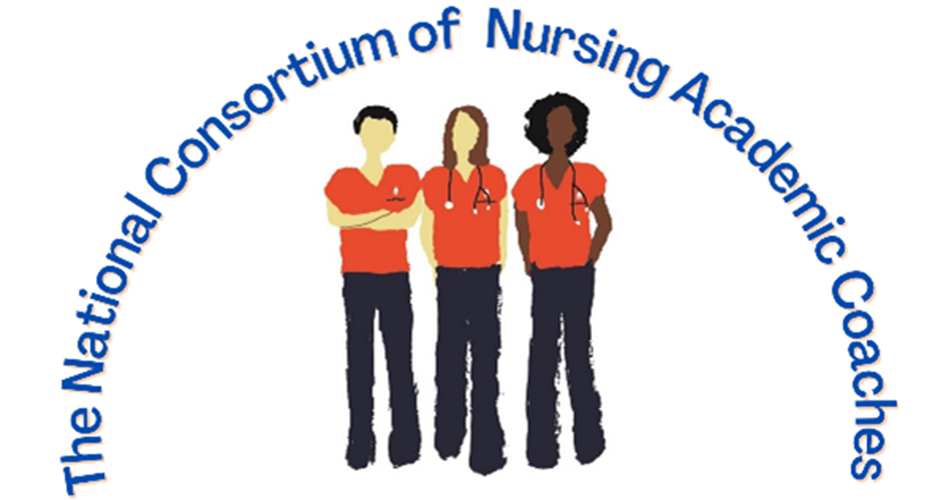
The National Consortium for Nursing Academic Coaches (NCNAC)
The National Consortium for Nursing Academic Coaches (NCNAC) was started in 2021 to connect educators in nursing academia looking for help in supporting their nursing students through academic coaching or student success. The coaching role is broadly defined and includes nursing faculty or staff that help nursing students with topics such as studying skills, time management, test taking, or general life skills. Our consortium works to fill in gaps in support for nursing academic coaches, as well as to support one another through research and collaboration. NCNAC is currently composed of over 300 nursing educators from 48 states in the U.S.
To foster nursing education excellence, we dedicate ourselves to empowering students through personalized coaching, innovative teaching methods, and evidence-based practices. By creating a collaborative environment, we create opportunities for students to thrive, embrace lifelong learning, and achieve their full potential. Together, we advance the field of nursing education by promoting research, sharing best practices, and advocating for continuous improvement.
Vision, Mission, and Values
Vision: “NCNAC advances excellence in nursing academic student support, empowering educators and students to reach their academic and professional goals”
Mission: To foster nursing education excellence, we dedicate ourselves to empowering students through personalized coaching, innovative teaching methods, and evidence-based practices. By creating a collaborative environment, we create opportunities for students to thrive, embrace lifelong learning, and achieve their full potential. Together, we advance the field of nursing education by promoting research, sharing best practices, and advocating for continuous improvement.
Values:
Together, we:
NCNAC Spring 2024 Meeting Dates
- Reminder: February Meeting is 12 Central Time/1 Eastern Time
- Download Spring 2024 Schedule
| Meeting Month | Date and Time of Meeting | Person Leading Meeting | Meeting Topic | Meeting link |
| January | Jan 18 @ 12 EST | Lindsay Tierney, Ed.D. Student Success Coach & Adjunct Professor Virginia Commonwealth University |
Metacognition, Self-Determination, and Student Ownership: A Triad for Student Success | https://us02web.zoom.us/j/88096351233?pwd=ZUMrWU9TSXR4ZE02STJ5VkNFZGRwQT09 Meeting ID: 880 9635 1233 Passcode: 361751 |
| February | Feb. 15 @ 12 CST | Amanda Mehlhaff, MSN RN CNE Lecturer, South Dakota State University Beth L Hultquist, PhD, RN CNE Clinical Associate Professor Baylor University LHSON Dallas, TX |
The importance of student belonging and/or creating learning environments to meet learning needs (huge emphasis on active learning). | https://baylor.zoom.us/j/84380274795?pwd=T2I5eTBNR1JvNWVXSzUwT3lRZERWdz09 Meeting ID: 843 8027 4795 Passcode: 516421 |
| March | March 21 @ 12 EST | Erin Kitt-Lewis, PhD, RN, CNE Associate Research Professor and Academic Success Coach Penn State Ross and Carol Nese College of Nursing Lauren Strand, MSN RN Director of Nursing RN to BSN Program Associate Professor, and Nursing Student Success Coordinator Central Methodist University. Fayette, MO |
Remediation and Student Success Policy Part 1 | Join Zoom Meeting https://centralmethodist.zoom.us/j/95813168217?pwd=Z0MvTFluZk95bkhJNDdVVmprK2tndz09 Meeting ID: 958 1316 8217 Passcode: NCNAC24 |
| April | April 18 @ 12 EST | Erin Kitt-Lewis, PhD, RN, CNE Associate Research Professor and Academic Success Coach Penn State Ross and Carol Nese College of Nursing Lauren Strand, MSN RN Director of Nursing RN to BSN Program, Associate Professor, and Nursing Student Success Coordinator Central Methodist University. Fayette, MO |
Remediation and Student Success Policy Part 2 | Join Zoom Meeting https://centralmethodist.zoom.us/j/92290120199?pwd=ZllnN05JNzdPMitzaWRWeTdhNlQydz09 Meeting ID: 922 9012 0199 Passcode: NCNAC24 |
| May | May 16 @ 12 EST | Cj Wright-Boon, MSN, RN Assistant Professor/Coordinator of Academic Support Center Saint Francis Medical Center College of Nursing Beth L Hultquist, PhD, RN CNE Clinical Associate Professor Baylor University LHSON Dallas, TX |
Strategies for Retention of Knowledge During Off Semester and for NCLEX Unsuccessful Students | https://baylor.zoom.us/j/89003262348?pwd=bXNzdGRFZ2MzSG5vQWVsTEhMbFhkZz09
Meeting ID: 890 0326 2348 Passcode: 918423 |
We are in the process of planning our first NCNAC Annual Conference to be held in Spring 2025 on the Auburn University Campus.
Make sure to join the group from the Home Page to get updates on conference planning.
Please complete the survey below if you are interested in attending the conference.
Last Updated: June 26, 2024
